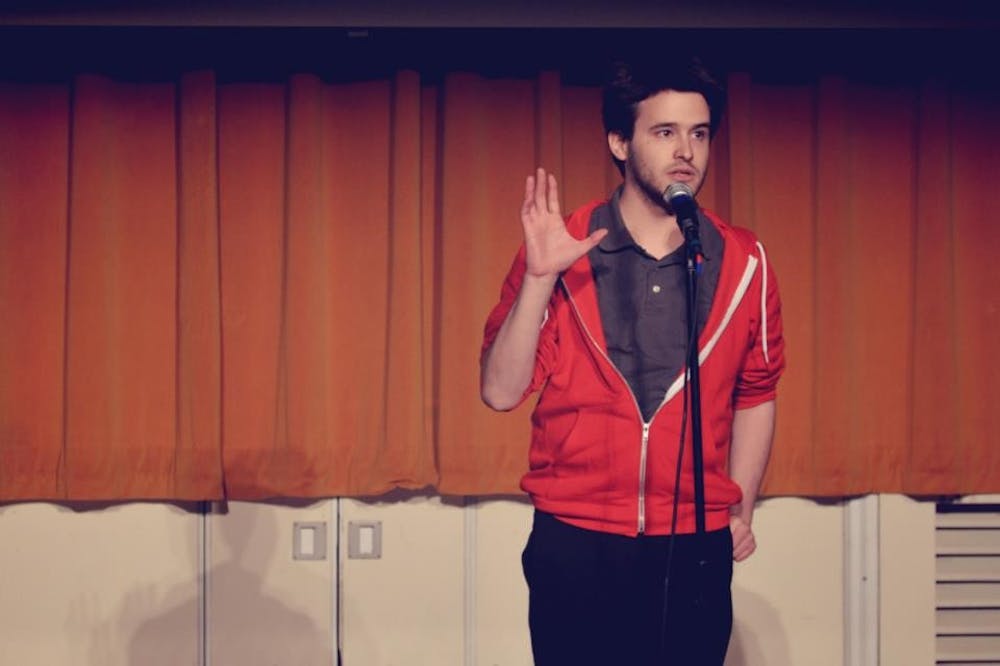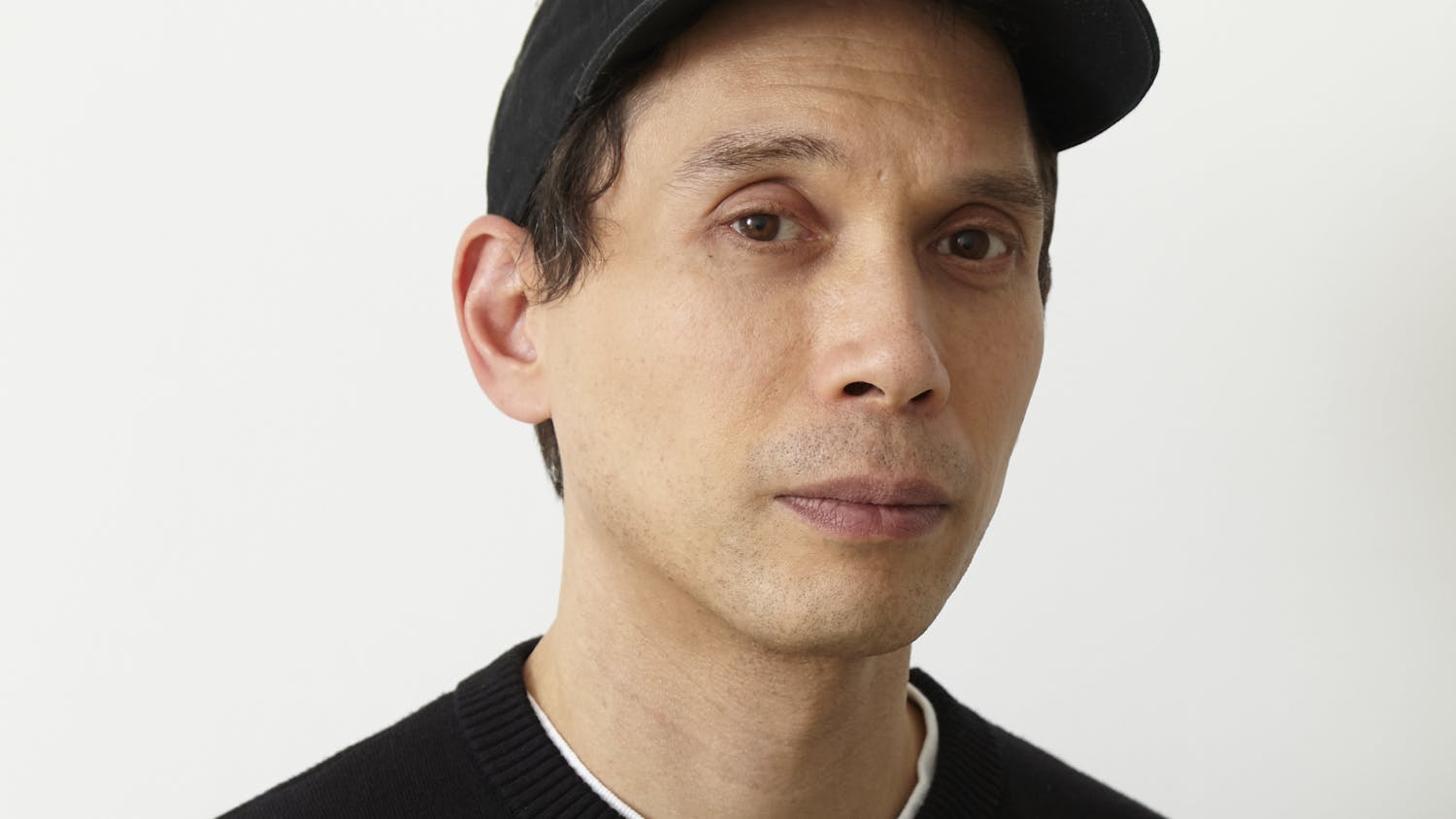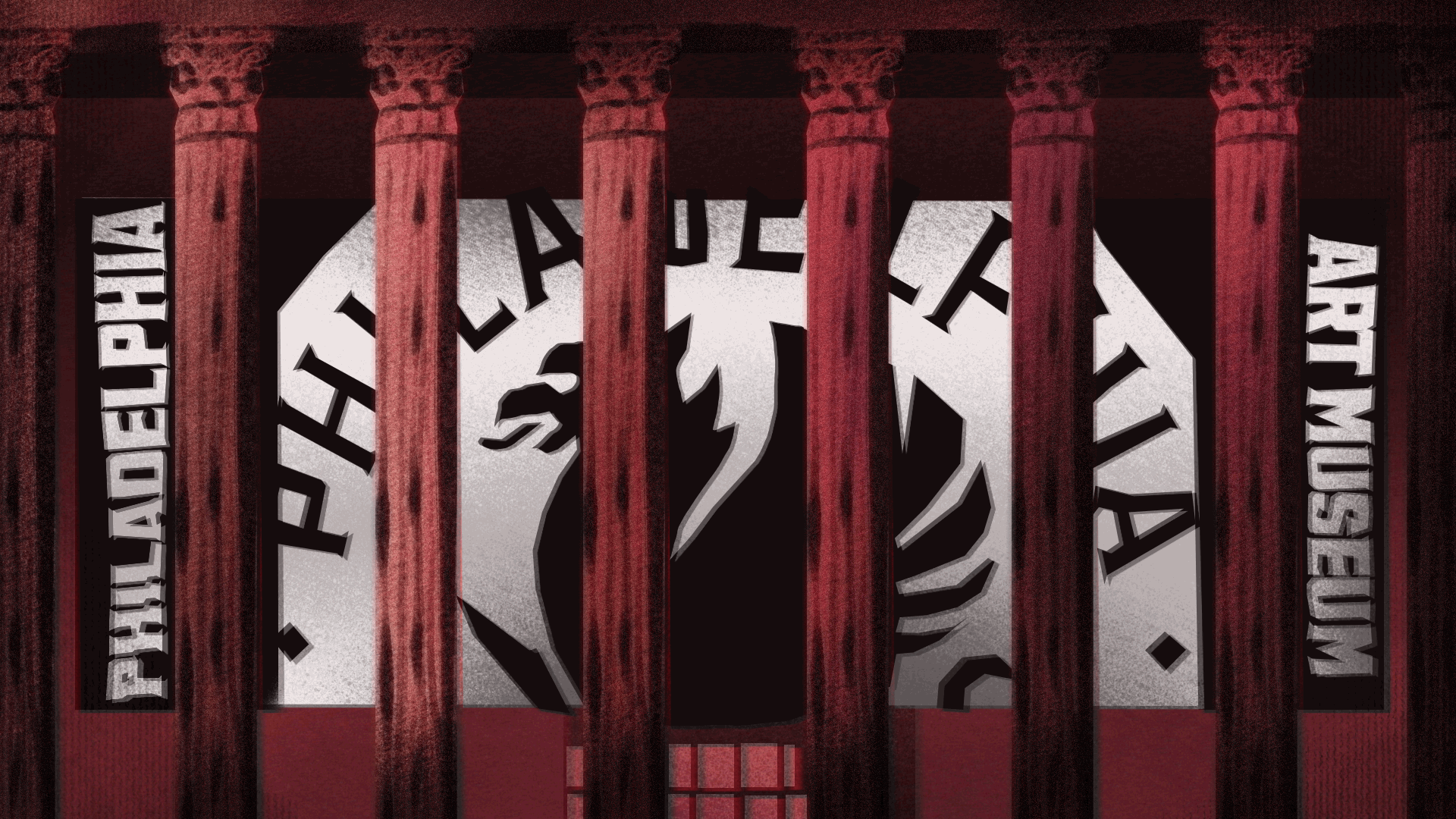Name and Year: Seth Simons, C’14 Hometown: Newton, Massachusetts Major: English Website: www.twitter.com/sasimons
Street: Was there an age or a point in your life in which you realized you liked performing on a stage? How’d you get to that point? Seth Simons: Hey, who said I like performing? No, but, tough to say. I spent my freshman year in the Dramatic Writing program at NYU where we were all in this class called, because NYU was fancy, “Colloquium.” Every week we had to write a 5-page scene and perform it for the professor, who would give “model” feedback. (Fun fact: the professor was also a PSYCHIC and MEDIUM who knows my girlfriend’s grandmother somehow). Typically, we cast our classmates to play the characters and rehearsed when everyone had free time. I was quite, uh, melancholy at NYU and grew less and less sociable as the year progressed, so I just started writing monologue-y things for myself to perform. Eventually these became spoken-word and standup, which were forms I vaguely knew existed but didn’t know all that much about. Then, I transferred to Penn and started writing/performing on a more regular basis, which brings us to today. Oh, and also I was in plays in high school. That was fun.
Street: How do your activities with the Excelano Project (spoken-word) and Simply Chaos (standup) and your playwriting overlap and influence each other? SS: I try to write poems that don’t quite look like poems, comedy that doesn’t quite taste like comedy. Which is hard because the only models I have for those things are things that are those things. So, it becomes a problem-solving mechanism: if I’m not sure where to go with a poem, I’ll ask, “what would I do next if this was a play?” If I don’t know how to finish a joke, “what if this was a poem?” You can probably see the problem with this method: eventually I’ll get to a point where I think, “what if this play was a poem?” and the answer is “make that poem a play!” It takes me a very long time to finish anything.
Street: How’s spoken word different from regular poetry for you? SS: I think most of the guiding principles are the same: a good poem surprises us, it creates a feeling of tension within us, it makes us care enough to read more, and it probably contains interesting words in an interesting order. I guess the most notable difference between spoken and written work, and maybe this is an unsatisfying answer, is length. Here’s a thesis I’m totally unprepared to defend: I suspect most poems in the history of poems are pretty short for two main reasons: one, it doesn’t take all that many words to say stuff; and two, a poem exists with the awareness that it is not, at the end of the day, important; that no one really cares; that we all have better things to do than read poetry. So, a spoken-word piece, as something that exists to fill however many minutes of an audience’s lives, really has to earn all that time and all those words. Usually, it does this by incorporating narrative or elements of narrative.
Street: Where do you look for inspiration when writing your own spoken word poetry? SS: I keep a folder of things I wish I had written, and I keep it to myself out of fear that other people might see it and realize how unoriginal I am. Here’s a more general answer, though. I’m a sucker for that moment in a song when the instruments cut out, and it’s just the singers singing a cappella. It lulled us into a pattern and a sense of familiarity with its shape—becomes new and strange. The gloves come off, you are glimpsing a person’s bare hands for the first time. The hair rises on your neck, or at least my neck. Obviously, poetry has to arrive at moments like these through other means—chiefly, words—but I’m attracted to the poems that do. These are poems where language seems to reorient itself or falls away altogether, and we discover a new means of experiencing the world.
Street: You’ve been on MTVu for stand-up and showed the world your obsession with birds, as well as your ability to mimic their calls. Any other hidden talents SS: Birds are about it for me, actually, and let’s maybe not let me go around thinking that’s a talent. I like my friends. One of them, at least.
Street: You’ve had your plays performed at a variety of theaters. What’s it like to step back and see your ideas performed by others? SS: Is there a word for something being terrifying and hideous and you hate it and it’s also the best, most wonderful thing in the world, which, by the way, you totally never deserved? Probably some nice German word, I bet. Here’s what it’s like: so you spend hours writing a single word and then changing it to another word and then changing it back. And then, the play’s onstage, or in the back alley, or whatever, and people are reading it, and in a single second, this dude skips over the word, or says a different one just like it. And you think to yourself: shitfuckshit. And then you think to yourself: it doesn’t matter, you have to let go, it’s not yours anymore, no one ever knew that word was even there. And then you think: but is the play even the same play without that word? Like, ontologically? I probably care too much about individual words to be a very good playwright.
Street: Do you have any role models or mentors you look up to? SS: Too many, probably. Playwrights: Sarah Ruhl, Will Eno, Amy Herzog, Anne Washburn, Don DeLillo, Annie Baker and Paula Vogel. Poets: Stephen Dobyns, Joanna Pearson, Steve Scafidi, Maurice Manning, Anis Mojgani, Derrick Brown, Ellen Bryant Voigt, Craig Arnold. Comedians: all the usual ones.
Street: In ten years, what do you think we’ll find you doing? SS: If I do things right, you won’t be able to find me at all.







